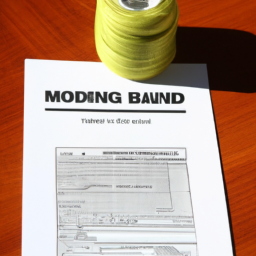Municipal bonds are debt securities issued by state and local governments or their agencies to finance public projects. The tax-exempt nature of municipal bonds makes them attractive to investors, as the interest earned is usually exempt from federal taxes and sometimes state and local taxes. With the right strategies and careful research, municipal bonds can be a great addition to a portfolio of investments.
What Are Municipal bonds? Municipal bonds are debt securities issued by state and local governments or their agencies. The proceeds from the sale of municipal bonds are used to finance public projects, such as building schools, roads, bridges, and other infrastructure. The bonds are backed by the government’s ability to raise taxes or user fees to repay the debt. Municipal bonds are divided into two categories: general obligation bonds and revenue bonds. General obligation bonds are backed by the government’s taxing authority, while revenue bonds are backed by the revenue generated from the project being financed.
Where and How to Buy Municipal bondsMunicipal bonds can be purchased from a variety of sources, such as banks, brokerages, and online trading platforms. investors can also purchase municipal bonds directly from the issuing state or local government. When purchasing municipal bonds, it is important to understand the creditworthiness of the issuer and the maturity date of the bond. investors should also consider the tax implications of owning municipal bonds, as the interest earned on the bonds is usually exempt from federal taxes and in some cases state and local taxes.
Difference from Other Types of bondsThe main difference between municipal bonds and other types of bonds is the tax-exempt nature of municipal bonds. The interest earned on municipal bonds is usually exempt from federal taxes and in some cases state and local taxes. This makes municipal bonds an attractive investment for those seeking to reduce their tax burden. In addition, the interest rate on municipal bonds is typically lower than other types of bonds due to the tax-exempt status.
Pros and Cons of Municipal bondsThe tax-exempt nature of municipal bonds makes them an attractive investment for those seeking to reduce their tax burden. In addition, municipal bonds can provide a steady stream of income, as the interest rate on the bonds is usually fixed. The downside of municipal bonds is that the issuers of the bonds are typically not as creditworthy as other types of bonds, and the interest rate is usually lower than other types of bonds.
Rates as of Early 2023 As of early 2023, the average interest rate on municipal bonds is around 2.6%. This rate is lower than other types of bonds due to the tax-exempt nature of municipal bonds. This rate is subject to change over time, so it is important to monitor the market closely and consider the creditworthiness of the issuer when investing in municipal bonds.
Considering the daily rate of municipal Bonds, there are several factors that can impact the daily rate of municipal bonds. Some of the most important factors are:
1)Interest rates: Municipal bond rates are closely tied to interest rates, and when interest rates rise, the yield on municipal bonds may increase as well.
2)Credit risk: The creditworthiness of the issuer of the municipal bond is a key factor in determining the bond's rate. Municipal bonds issued by entities with a high credit rating, such as large cities or states with strong economies, typically have lower rates than bonds issued by entities with lower credit ratings.
3)Supply and demand: Like all financial products, the price of municipal bonds is impacted by supply and demand. If there is a high demand for municipal bonds, their rates may decrease, while rates may increase if demand is low.
4)Market conditions: Market conditions can also impact the rate of municipal bonds. For example, during times of market volatility, investors may be more likely to seek the safety of bonds, driving up demand and reducing rates.
5)Tax laws: The tax implications of owning municipal bonds can also impact their daily rate. Municipal bonds are generally exempt from federal income tax, and in some cases, state and local taxes as well. As a result, the rate of municipal bonds may be lower than that of taxable bonds to account for these tax benefits.
In conclusion, municipal bonds can be a great addition to a portfolio of investments. The tax-exempt nature of municipal bonds makes them attractive to investors, and the rate on municipal bonds is typically lower than other types of bonds. However, it is important to understand the creditworthiness of the issuer and the tax implications of owning municipal bonds before investing.
